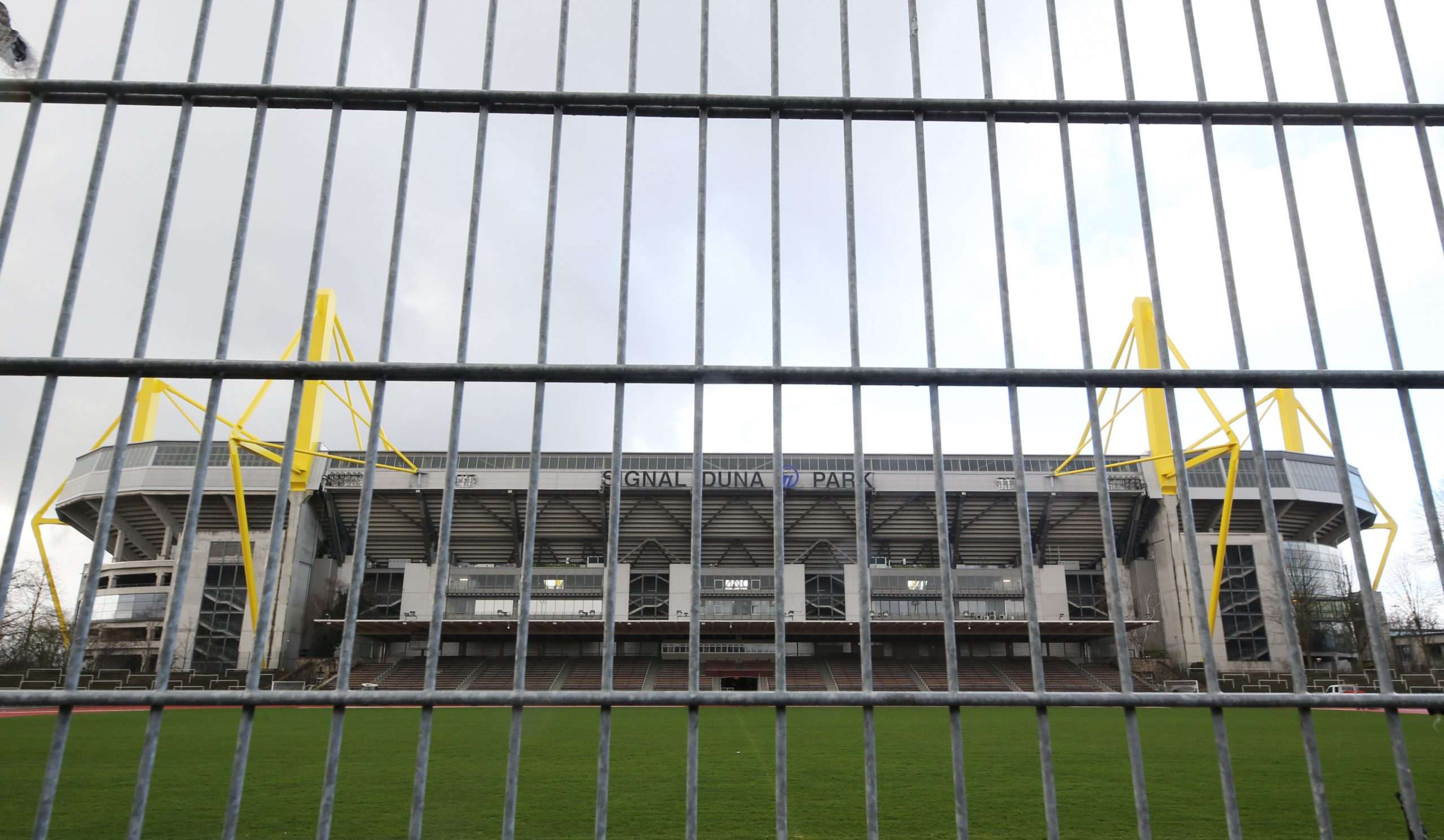The inevitable has happened, sometime in late May the Bundesliga will resume and the first modicum of normal life will return. Over two months will have passed since the last time a ball was kicked in anger in Germany but before the calendar turns over into June, the Bundesliga will again see matches played.
Germany was the final of the major European leagues to postpone its league. Indeed even after Mikel Arteta forced the Premier League to postpone its fixtures on the weekend of March 21st/22nd the Bundesliga was still planning to host Geisterspiels or “Ghost games” and it wasn’t until very late in the day that the DFL came to its senses and suspended the Bundesliga indefinitely.
That indefinite period has now come to an end and whether you agree or disagree with football going ahead amid a pandemic, the facts are it will happen. How long the Bundesliga will be able to play for and whether the season will be completed or not are very valid questions that no one, not even the DFL or Chancellor Angela Merkel will be able to answer them with 100% certainty.
The social and economic implications of resuming football in Germany are very real and have been covered ad nauseam. Many of the implications are like those the Premier League are currently facing and as a result those in charge of the English game will be keeping a very close eye on the resumption of the Bundesliga. The simple facts are that the Bundesliga, as much if not more so, needs the television money to keep clubs afloat. Without that TV money and without aid either from the German government or from the football authorities in Germany multiple clubs would go bust. Not only the smaller clubs in the 2. Bundesliga but household names across Europe will be in danger too. Despite the ongoing pandemic, that is not something that could be allowed to happen and so rightly or wrongly the Bundesliga is the first European league to attempt a restart.
The footballing side of the restart, away from the social and economic issues, has been less well covered. The games will go ahead behind closed doors, of course, and in Germany that is a bigger story than in other countries. The Bundesliga prides itself on its atmosphere and on the fan scene at every club. Even inconsequential mid-table clashes in May are as well supported and produce better atmospheres than at most Premier League games. Many tourists go to German matches more to take in the atmosphere than to watch the product on the pitch. Without that atmosphere, a lot of the allure of apparent allure of Germany football has gone.
Now with the Bundesliga being the only major sporting league in Europe taking place the viewing figures will of course be massive, and the lack of an atmosphere less important. The focus will be on the quality of the football match itself. That is a massive unknown. The players have been in training for a few weeks now and then group activities and more tactical side of training will surely be ramped up in the coming weeks before the first round of fixtures. The hope will be that the quality won’t suffer too badly from such a long and unexpected lay-off but that like most things about this restart is a massive unknown.
The Bundesliga has the most goals-per-game out of the top five major European leagues and in that respect is the most entertaining league. Most teams are closely matched and this year the Bundesliga has a very real title race. All those things should make for entertaining and dramatic matches, under normal circumstances. It is very possible that attackers come back from this lay-off and are rusty, that defences find it easier to get back playing at a high standard. In that case, the matches could be turgid and boring to watch, and without the backdrop of 50,000 fans, it will be a hard product to sell to the wider European community, let alone those in Germany. An entertaining 3-2 game would give people two hours of respite from the constant depressing news cycle. A turgid 0-0 would only remind people of the weird circumstances these games are being played under. That isn’t to say that entertaining matches mean the Bundesliga was right to push for a restart but they would certainly help with the public perception of it.
Goals will be scored, great saves made and great chances missed without any reaction. There will be only a few cheers or groans from the team’s bench and there will be no celebrations in front of excited fans. So many games will have the tension completely removed from them. The Revierderby between Schalke and Borussia Dortmund will have little to no animosity and the product will suffer as a result. So much of what makes football great will be removed from the game.
Players will undoubtedly contract COVID-19 and have to miss matches, how will players feel and perform when one of their teammates is sick with a virus that has killed so many. If multiple players from a club miss matches, then does this lessen the integrity of the league season. Worse case scenarios of clubs losing five or six players to the virus might lead those clubs to question whether they want to fulfil their fixtures. These are all questions that we will only have answers to should they play out.
The chances are if the first few weeks go without any major hitches then the league season will be completed and a champion will be crowned. After a few weeks’ people will become accustomed to the games being played behind closed doors and there is a chance that other European leagues will begin themselves. Two teams will be relegated and a third will face a relegation play-off. Teams will qualify for Europe, should European football be a thing in 2020/21. The ‘new normal’ that is being talked about will also be a thing in football and people will become used to it, even if not fully on-board.
Crowning a champion is inevitable if the season is completed but that is not without its challenges. Any team not named Bayern Munich winning the league instantly becomes a massive story. Borussia Dortmund – the teams that has challenged Bayern Munich more than any other finally breaking through; RB Leipzig – the hated ‘plastic’ club that was in the lower depths of German football only a few years ago; Borussia Monchengladbach – winning their first league title since 1997. Any of those outcomes would surely lead to mass gatherings outside the stadium upon the title being won, however much the police and the DFL try to stop it from happening.
Remember this event would take place many weeks from now and Germany may be down to very few deaths and new infections a day by then, convincing people that cannot go out and celebrate will be a difficult thing to do. The Atalanta-Valencia Champions League match has been dubbed “game-zero” and is thought to be the cause of many thousands of infections in Northern Italy. A mass celebration after a title victory has the potential to have a similar impact.
Similar scenes may occur should a team qualify for Europe for the first time and a surprise relegation, or a win in the relegation play-off, would likely also seen crowds form and in the case of a relegated side may not be so compliant if asked to move on.
Away from the health implications of titles being won and relegation being confirmed you have the football side of it. If one of the three main clubs do win the Bundesliga then those players, many of which will feel a great bond with the supporters, will have to celebrate without them. There will be no trophy presentation in front of packed stands and no open top bus parade in the city centre. The tension of a title deciding game will not be as great as it would be with tens of thousands of fans nervously supporting their team. Indeed, how will the players feel celebrating a title, or even just a big win, in such unusual and trying circumstances.
The Bundesliga season will likely now be completed and over time many of the reservations people have over games being played without fans will dissipate. A champion will be crowned and planning will begin for next season. So many jobs and clubs will be saved by the decision to restart the season and ultimately the quality of the football is secondary to that. Football is coming back in Germany just not as we know it.
By Thomas Pain.










